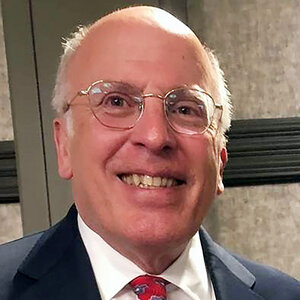Training Course International Mediation
Course Management

Verena Reinecke
+49-341-2251318
verena.reinecke(at)steinbeis-mediation.com
Workshops
Our Online-Workshops provide in-depths insights into special aspects of international and intercultural mediation and beyond. The 4-hour-long sessions are led by renowned international mediators who have many years of varied experience in mediation and conflict resolution. In addition to specialist knowledge, the workshops also offer practical cases, exercises and professional exchange.
The workshops can be booked separately from the training course. Please use the registration form in the menu on the left-hand side.
Dates & Topics

7th of March 2024, 15-19 hrs CET (Thomas P. Valenti)
Non-Parties in Mediation: Interpreters, Coaches, Experts etc.
Mediation is a collaborative process aimed at resolving disputes with the help of a neutral third party, the mediator. While the focus is typically on the disputing parties, the involvement or influence of non-parties can introduce several issues and considerations that require careful management. In this workshop we will deal with key issues concerning non-parties in a mediation – also taking into consideration specifics of international/intercultural cases.
11th of April 2024, 17-21 hrs CET (Luca Dal Pubel)
Multi-Step Clauses for Dispute Resolution and AI
Multi-step dispute resolution clauses have become a popular addition to commercial contracts. They usually prescribe tiered procedures in the event of a dispute. By adding a step clause into a contract, parties write themselves into an alternative dispute resolution (ADR) protocol. The workshop deals with special aspects of multi-step clauses, benefits and obstacles while also highlighting the role Artificial Intelligence can play for multi-step clauses in particular and for ADR in general.
2nd of May 2024, 15-19 hrs CET Dorothée Bernard
Shuttle-Mediation and Caucuses
Shuttle-mediation and caucuses are special forms of mediation. The mediator meets separately with every party or goes back and forth between parties who are in separate rooms, helping each identify their priorities and working toward a resolution. While caucusing is often considered an effective means when parties have difficulties discussing their issues with each other directly, there are also many mediators who find that this form of mediation corrupts the core principles of mediation – including neutrality and transparency. In our workshop we will focus on benefits and limitations of shuttle-mediation and caucuses in international/intercultural cases, discuss the inherent risks and share our experiences.

Wobei können wir Sie unterstützen?
Ob für ein erstes Kennenlernen, zur Terminvereinbarung oder bei Fragen – am besten, wir sprechen direkt miteinander. Füllen Sie dazu einfach unser Kontaktformular aus. Wir melden uns zeitnah bei Ihnen.

